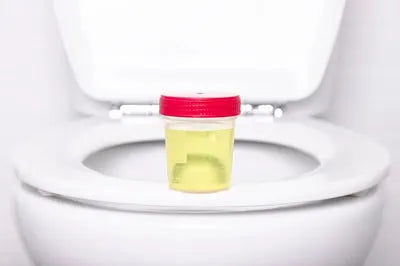“After my car accident and a direct hit to the head, I lost the ability to feel when my bladder gets full and I was dripping urine without control. At first, I was disgusted and ashamed. I shut myself in my house for nearly 2 months, I was afraid of causing a public spectacle of myself with my condition. Things changed for the better when my son introduced me to Friends Adult Diapers. Now I have no fear whatsoever with my condition and I’m truly grateful to have a dutiful son and Friends for the second chance they gave me.” – Ashok Maverkar, a car accident survivor suffering from a neurogenic bladder for 4 years as of 2023.
Neurogenic bladder is a very common condition among people with brain and spinal cord injuries, affecting nearly 90% of them. As Ashok said, a neurogenic bladder can be a trouble to have, but it can certainly be managed.
When you hold your urine in, many muscles and nerves come together to make it happen. The key organs in this process include your bladder– to help store the urine, your brain– to send a signal to the bladder to empty itself, and your nerves– to carry this signal from the brain to the bladder.
If these nerves are damaged due to some injury or illness, your brain and your bladder won’t be able to work and coordinate together. This condition is called a neurogenic bladder dysfunction and will result in you losing control over your ability to urinate as per your will.
Common neurogenic bladder dysfunction causes

There are numerous causes of neurogenic bladder dysfunction and we have gathered and compiled a few of them for you to look at.
-
Birth defects
Birth defects are conditions that are present at birth that can affect any part of the body. There are several types of birth defects that can cause neurogenic bladder, including:
Spina bifida: A birth defect in which a developing baby’s spine and spinal cord don’t develop properly in the first month of pregnancy. Babies born with spina bifida often have paralysis that affects how their bladder works.
Sacral agenesis: A rare and severe developmental abnormality in which parts of the lower spine are missing.
Structural abnormalities: Abnormalities in the structure of the urinary system from birth, such as an abnormal connection between the bladder and the urethra can cause neurogenic bladder too.
-
Diabetes

Diabetes is a chronic condition that occurs when there is too much sugar (glucose) in the blood that can’t be turned into energy. Over time, high blood sugar levels can damage the nerves and blood vessels in the body, a condition known as diabetic neuropathy which can lead to neurogenic bladder.
-
Heavy metal poisoning
Heavy metal poisoning, also known as heavy metal toxicity, occurs when a person is exposed to high levels of heavy metals, such as lead, mercury, and arsenic, either through their environment or through their diet. These metals can be toxic to the body and can damage the nerves that control the bladder, leading to neurogenic bladder. Heavy metal poisoning can also cause damage to other organs in the body, including the brain, kidneys, and liver.
-
Brain and spinal cord tumors
A tumor is an abnormal growth of cells that can occur in any part of the body. When a tumor grows in the brain or spinal cord and damages the nerves that control the bladder, it can disrupt the normal functioning of the bladder and lead to neurogenic bladder.
-
Stroke
A stroke is a serious medical condition that occurs when the blood supply to the brain is disrupted, leading to the death of brain cells. They can either be caused by a blockage in a blood vessel (ischemic stroke) or due to an internal bleeding in the brain (hemorrhagic stroke).
Strokes can cause neurogenic bladder if they damage the brain or spinal cord, which can disrupt the nerve signals that control the bladder.
-
Parkinson’s disease
A progressive neurological disorder that affects the nervous system and causes tremors, stiffness, and difficulty with balance and coordination. Most of the symptoms of Parkinson’s disease are caused by the gradual breakdown and death of a certain nerve cell that produces dopamine, a neurotransmitter which spikes when we experience something pleasurable.
When the dopamine level in the body decreases, it causes atypical brain activity leading to the above-mentioned symptoms. Parkinson's disease can cause neurogenic bladder if it affects the specific nerves that control the bladder.
-
Accidents and Injury
The major cause of neurogenic bladder in adults. A direct injury to the brain or the spinal cord can affect their functionality and trigger neurogenic bladder. A bike accident, for example, may injure the brain and cause issues with bladder control.
-
Infections
Much like everything else in this list, infections too can trigger neurogenic bladder if it causes any damage to the brain or the nerves associated with bladder control.
Neurogenic bladder can be managed effectively with Friends, though it can’t be treated. People like Ashok Maverkar are inspiring models for all of us, who continue to live their life to the fullest despite being sufferers of such grave illnesses. You can also benefit a lot from following your trusted doctor’s suggestions about lifestyle changes and nutritional choices, it always helps!
With all good wishes for your health and happiness, we end this blog. 😊
FAQs Related to Neurogenic Bladder
1. What is the most common cause of a neurogenic bladder?
We can’t exactly say what is the most common cause of a neurogenic bladder dysfunction because there hasn’t been a study of such a large magnitude to decide it yet. But, from the knowledge we have about this condition: Brain and spinal cord injury, infections and diabetes could be the leading causes.
2. Can neurogenic bladder be fixed?
Certainly! Even though there are no medications for neurogenic bladder as of right now, there are many treatments that can help you with it. Catheterization, electrical stimulation therapy and surgery are some of the most common treatments your doctor will recommend.
3. Can anxiety cause neurogenic bladder?
The short answer is: No. But even though anxiety or stress and urinary problems are rarely associated together, they are very common. Severe anxiety can lead to urinary problems like urinary incontinence (loss of bladder control) and urinary retention (inability to completely empty the bladder). However, anxiety can never cause neurogenic bladder which is a condition related to the brain and the nerves.
neurogenic bladder which is a condition related to the brain and the nerves.
4. What are the 2 types of neurogenic bladder?
There are two broad types of neurogenic bladder: Overactive and underactive. An overactive bladder may leak urine without control, while an underactive bladder may struggle to release urine.
5. What happens if neurogenic bladder goes untreated?
If left untreated, neurogenic bladder can cause:
-
Urinary incontinence, or loss of bladder control.
-
Urinary retention, or the inability to completely empty the bladder.
-
Urinary Tract Infections (UTI).
-
Kidney damage and kidney infections.
















